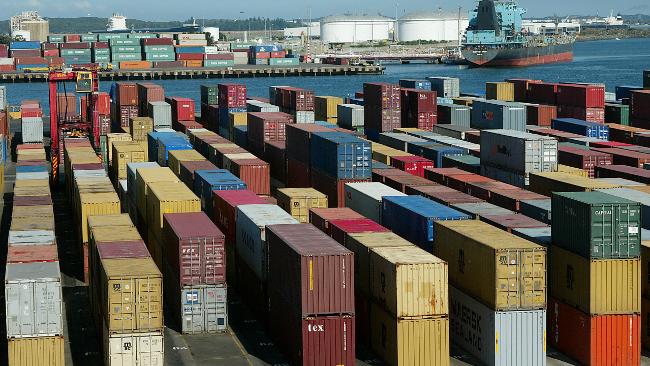Following Central Bank of Egypt (CBE) Governor Tarek Amer’s assertions on the economic viability of reducing the import bill by $20bn, Prime Holding issued a paper investigating his claims.
According to CBE’s breakdowns of the $60bn import bill for the previous fiscal year, imports of fuel products registered $8bn, of which $4.3bn were diesel imports, $2bn were mazut and $1.24bn were other fuel products. This is in addition to transportation costs.
Prime Holding advises increasing imports of crude oil and building oil refineries instead, highlighting that the cost of establishing an oil refinery is $4bn, with the capacity to produce 100,000 barrels/day, equivalent to 50% of the local consumption.
The paper added that the cost of building a refinery operating with a capacity of 400,000 barrels/day is $12bn, which surpasses local consumption, thus allowing Egypt to export the surplus.
Prime Holding advocated that the government spend $4bn on an oil refinery project in the short term, to save more than $4bn spent on fuel imports annually in the medium term.
As for petrochemicals, Egypt spent $3.6bn on importing petrochemicals, of which $500m were spent on polypropylene and $900m on ethylene and polyethylene.
The paper proposed depending on locally-produced polypropylene, in light of the government project to establish a $680m factory to produce the material.
The Egyptian government is also planning to establish a $1.9bn factory, slated for July 2016, that will produce 460,000 tonnes of ethylene and 400,000 tonnes of polyethylene.
Prime Holding also said Egypt spends $4.7bn each year to import 4.5m tonnes of wheat, as approximately 66% of the consumption needs cannot be met by local producers.
Wheat production in Egypt is crippled by the limited areas of cultivated land, the inability to store all produced wheat, and the farmers’ drive to cultivate more profitable grains, the paper stated.
Accordingly, Prime Holding recommends the application of strict laws that criminalise building on agriculture lands.
The paper also suggests storing wheat in metal silos rather than barns to prevent wastage. The cost of building metal silos, with the capacity of 30,000 tonnes of wheat, is EGP 80m.
Thus, Prime Holding said if the state provided EGP 3bn for the construction of metal silos, the storage capacity of wheat will increase to 2m tonnes per year, which will save $1.4bn from the import bill.The paper added that the government should offer incentives to farmers to encourage them to cultivate wheat.
As for cotton imports, Prime Holding said Egypt spent $740m in FY 2014/2015 on cotton imports (350,000 tonnes), while the local production was 250,000, marking a 14% decline compared to the preceding year.
The paper attributed the decline in production to the product’s inability to compete in the market due to its high price compared to other imported cottons. Prime Holding thereby suggests increasing cotton farmers’ subsidies.
The paper also recommends providing subsidies to sugar farmers to mitigate the $619m cost of annual imports.
The shortage of dollar liquidity nationwide has prompted the Ministry of Industry and Foreign Trade to ban a list of products unless their factories register in the General Organisation for Import and Export Control (GOIC), which is affiliated to the ministry.
The move was described by Amer as an effort to control dollar spending on ‘luxury products’. As an example, Amer explained that Egypt spends $194m on imported women’s lingerie, $103m on imported women’s suits, $159m on imported women’s blouses, $272m on imported children’sclothes, and $40m on men’s trousers.
The list comprises 23 categories of products, including dairy products, canned fruits, cooking oil, chocolates and products that include cocoa, sugary products, baked products, and fruit juices.
The banned products also encompass cosmetics, soaps, carpets, kitchen tools, tubs, baby diapers, feminine hygiene products, ceramic products, glass tools, armatures, home appliances, home and office furniture, bikes and motorbikes, watches, lighting, and toys.
The government’s latest attempts to control the growing budget deficit led to levying higher custom tariffs. The new tariffs were also said to regulate dollar spending on luxury products.
Moreover, in December Amer introduced new policies regulating the procedure by which importers are provided with foreign currency through domestic banks.
The policy only permits imports for which foreign financial institutions issue collection documents directly to banks operating in Egypt. Collection documents that are provided directly by the importer to the Egyptian bank will be declined.
The CBE’s instructions also include obliging banks to acquire a 100% cash margin on letters of credit, which encourages the funding of commodities for commercial companies or governmental bodies, instead of the 50% that was previously applied.
It excluded the import of medicines, vaccines and related chemical products, and baby formula from the cash margin.



